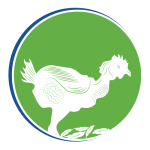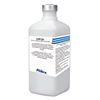
Coryza
Infections Coryza is usually acute and sometimes chronic, highly infectious disease of chickens, occasionally pheasants and guinea-fowl. Infectious Coryza is characterised by catarrhal inflammation of the upper respiratory tract, especially nasal and sinus mucosae.
Infectious Coryza is caused by the bacterium Haemophilus paragallinarum and is seen in many countries especially in multi-age farms that are never depopulated. Morbidity is high but mortality low if uncomplicated, although it may be up to 20%.
The route of infection is conjunctival or nasal with an incubation period of 1-3 days followed by rapid onset of the disease over a 2-3 day period with the whole flock affected within 10 days. This results in increased culling. Carriers are important with transmission via exudates and by direct contact.



